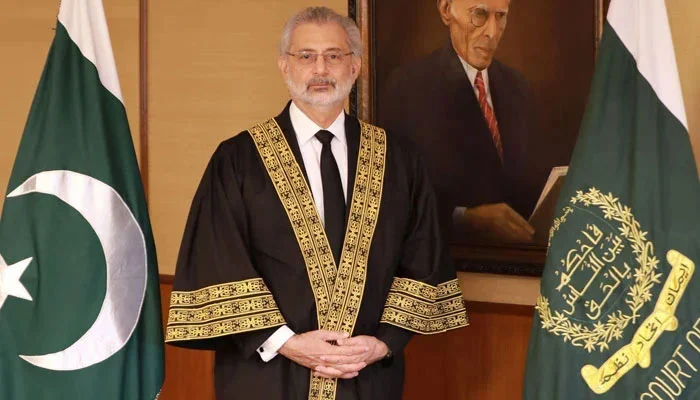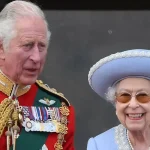ISLAMABAD: Chief Justice of Pakistan (CJP) Qazi Faez Isa has noted why Qasim Suri, the leader of the Pakistan Tehreek-e-Insaf (PTI) and a former deputy speaker of the National Assembly, should not be prosecuted by the supreme court for violating the Constitution.
Qasim Suri abstained from voting in the motion of no confidence. The CJP made this comment in reference to the 2022 issue surrounding the removal of then-prime minister Imran Khan through parliamentary vote: “He became the cause of the constitutional crisis in the country.”
According to the CJP, there was a suggestion that Suri be put on trial for treason under Article 6. “So tell us, why don’t we take legal action against you to revoke the Constitution?”
During the hearing of Suri’s 2019 plea against the election tribunal’s ruling on September 27, 2019, declaring his election from NA-265 (Quetta- II) unlawful, the CJP made these statements.
In October 2019, a three-judge panel of the Supreme Court, led by Justice Umar Ata Bandial at the time, overturned the electoral tribunal’s ruling and reinstated Qasim Suri’s NA membership while the court deliberated over the case.
In the 2018 elections, Baloch leader Lashkari Raisani had contested Suri’s win from Quetta’s constituency.
Since then, the case has remained pending before the supreme court.
Today (Tuesday), a three-member committee led by the CJP discussed the issue.
Naeem Bukhari, Suri’s attorney, informed the judge during the case hearing that his client’s disqualification and subsequent election in his constituency are now moot points.
At that point, Raisani’s attorney claimed that Suri had been acting illegally as deputy speaker and requested that he give back all of the benefits and advantages he had “enjoyed” while on leave.
The Balochistan High Court (BHC) tribunal, according to the CJP, ordered that the elections in Suri’s NA-265 constituency be held again.
Attorney Bukhari said that his client had resigned from the National Assembly.
The CJP asked, “So why did you file an appeal?”
In response, Bukari stated that the tribunal’s ruling was suspended by the Supreme Court in 2019.







